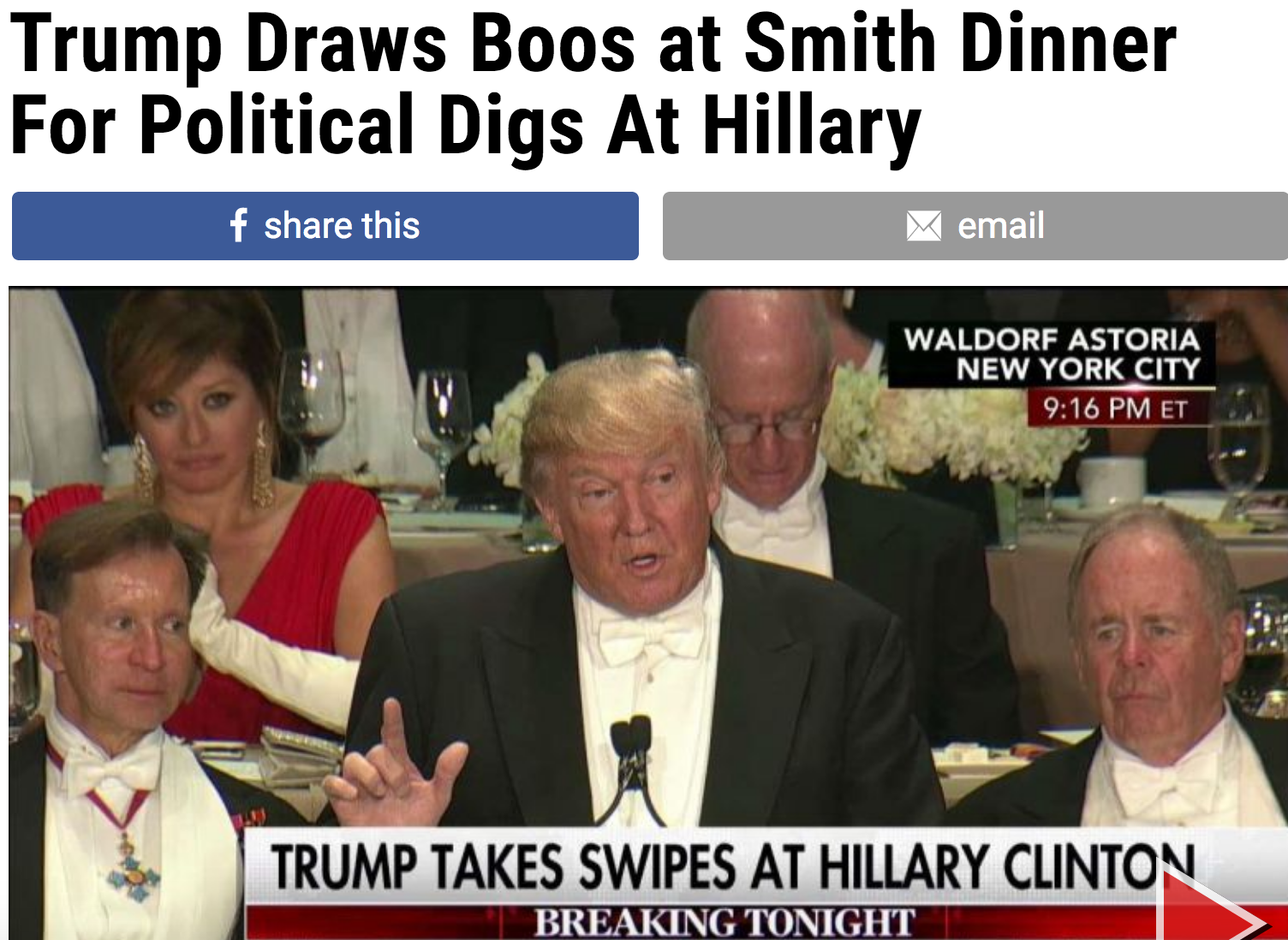Making points, subtly: Story Safari™
We most often find political candidates making points blatantly at political rallies or debates. But telling stories allows a speaker to make points much more subtly and powerfully.
The night after the final debate found the two major party presidential candidates sharing a stage once more. The Alfred E. Smith Memorial Dinner, an annual fund-raiser for the Catholic Archdiocese of New York’s children’s programs is a roast, of sorts, but with a really spiffy audience: the dress code is white tie and tails, except for the clergy, who break out their finest robes. The emcee, Alfred E. Smith IV, told Trump that even though the man next to him—Cardinal Timothy Dolan—was wearing a robe, he should remember he wasn’t in a locker room.
The politicians who speak—and in a presidential election year, it’s always the two presidential candidates—usually engage in gentle partisan ribbing. But of course, behavioral norms disappear when Trump takes the stage.
He started out with self-aggrandizing humor (comparing himself to “a carpenter’s son” the Catholics hold in high regard) and rapidly devolved into thinly veiled ad hominem (ad feminem?) attacks on Clinton as he veered closer to the points he makes in his stump speech. He got booed—so loudly and so often that even Fox News had to notice . And, honestly, he deserved every second of it.
. And, honestly, he deserved every second of it.
Clinton landed some good jokes and then took a more political turn, as well. She talked about the discrimination Al Smith faced as the first Catholic to run for president. She talked about the many immigrants—Catholic and otherwise—who make great contributions to this country. And she talked about the Christian values that she, a Methodist, shares with the Catholic Church.
In another venue, Clinton might have contrasted her positions with Trump’s. She might have said, “Smith faced the same kind of discrimination Trump wants us to apply to Muslims.” She might have said, “Many of your parents were immigrants; Trump wants to keep people like them out of the country.” She might have said—well, just about anything about how Trump’s life and actions contradict just about everything Christianity stands for.
But she didn’t. She didn’t need to.
Making points with the perfect story
Clinton’s classy approach wasn’t the only thing I loved about her Alfred E. Smith Dinner performance. I also loved the Story Safari™ aspect.
Another politician might have just name-checked Al Smith and moved on. After all, the guy’s been dead for more than 70 years; it’s not like he’d notice.
But Clinton and her speechwriters found the perfect stories—true stories—to build the back half of her speech around. That allowed her to connect with her audience by honoring the person they named their fund-raiser after. And to showcase both the issues she cares about and her fundamental human decency. (Amazing that that’s a distinguishing characteristic in this election. Remember when it was table stakes?)
True stories are always the best, richest sources of material. They’re not always easy to find. But half the fun of the hunt lies in finally bagging the prize. Congratulations to Secretary Clinton and her speechwriters.